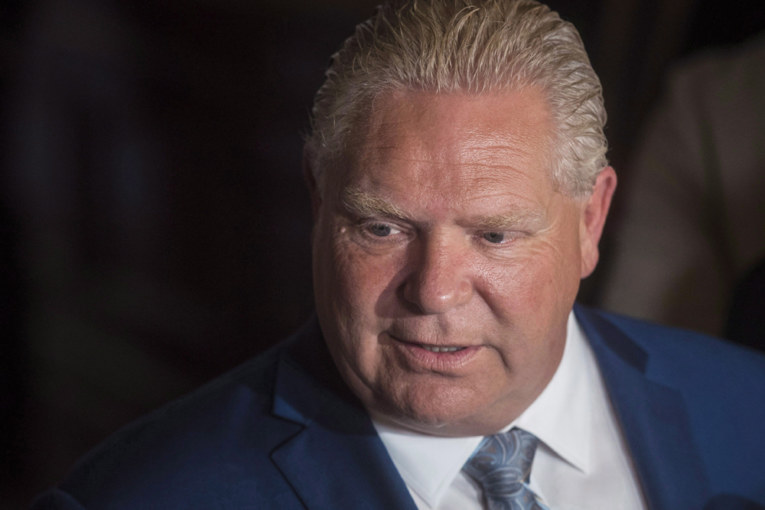
TORONTO — Ontario’s environmental commissioner says fewer than one per cent of people who weighed in on the government’s decision to scrap the province’s cap and trade system expressed clear support for the move.
Dianne Saxe says her office reviewed most of the 11,000 comments submitted as part of a public consultation on a bill introduced last year to dismantle the carbon pricing system brought in by the previous Liberal government.
Saxe says almost all respondents wrote to voice support for decisive action on climate change, and many were dismayed that cap and trade was being cancelled — particularly before a replacement plan was announced.
The legislation to eliminate the cap-and-trade system passed in late October, after the 30-day consultation concluded but before the results were made public.
It was introduced in July, but the final vote was delayed when an environmental group launched legal action against the Progressive Conservative government, alleging the province had flouted Ontario’s Environmental Bill of Rights by failing to hold public consultations on the issue.
The legal action will still move forward on allegations that the government also skipped mandatory consultations on a regulation related to the cancellation of cap and trade.
A spokeswoman for the environment minister said Wednesday the government was elected on a promise to eliminate cap and trade, but did not address Saxe’s analysis of the consultation results.
“We heard loud and clear directly from Ontarians that they cannot afford cap and trade,” Emily Hogeveen said in an email. “While some advocate policies that will cost families, we will pursue balanced policies that address our environmental challenges, while not betraying the commitments we made to the people.”
She added the province sought input from the public, businesses and other stakeholders before releasing its own climate change plan in November. That plan proposes to use taxpayer dollars to spur private investment in clean technologies and create performance standards for large emitters.
Saxe said those who weighed in on the cap and trade decision expressed concerns about a number of issues.
“The loss of clean economy opportunities was the most common concern expressed in the submissions. Many were concerned that weakening Ontario’s climate policies would hurt investment in clean technology and risk long-term job creation in a low-carbon economy,” she wrote.
“A number of commenters shared stories about how they benefited, or had hoped to benefit, from programs that re-invested revenues from cap and trade. Some common examples included electric vehicle purchases and energy efficiency retrofits.”
This is government for the polluters, not the people
Keith Stewart, senior energy strategist, Greenpeace Canada
Keith Stewart, senior energy strategist with Greenpeace Canada, said the province is choosing to ignore dissenting voices.
“Rather than consider the input from thousands of Ontarians calling for greater action to fight climate change, the Ford government shot the messenger by getting rid of the environmental commissioner. This is government for the polluters, not the people,” he said in a statement.
The government recently announced it was merging the commissioner’s office with that of the auditor general, which critics have said will reduce accountability on environmental issues.
The province made close to $3 billion from cap and trade since the system was introduced in 2017, money that was earmarked for green energy programs.
Premier Doug Ford vowed to eliminate the system and fight Ottawa’s carbon pricing plan during the spring election campaign, arguing both were too expensive for residents and businesses.
Ontario’s cap-and-trade system aimed to lower greenhouse gas emissions by putting caps on the amount of pollution companies in certain industries could emit. If companies exceeded those limits they had to buy allowances at quarterly auctions or from other companies that came in under their limits.
You can read more of the news on source
